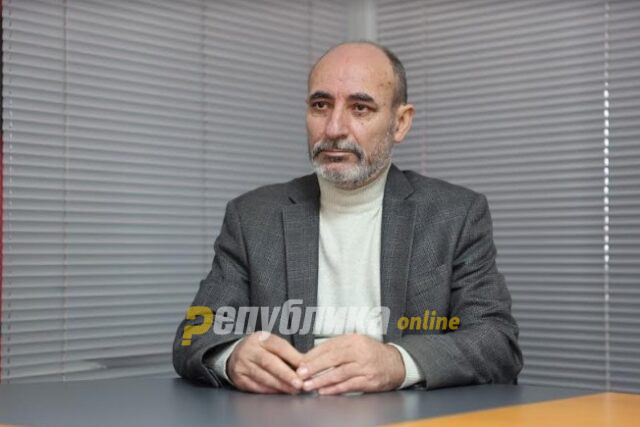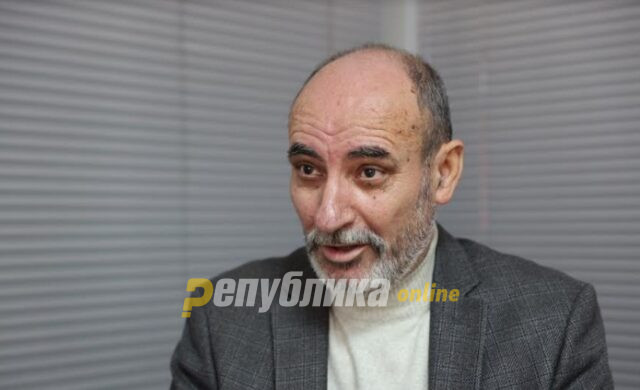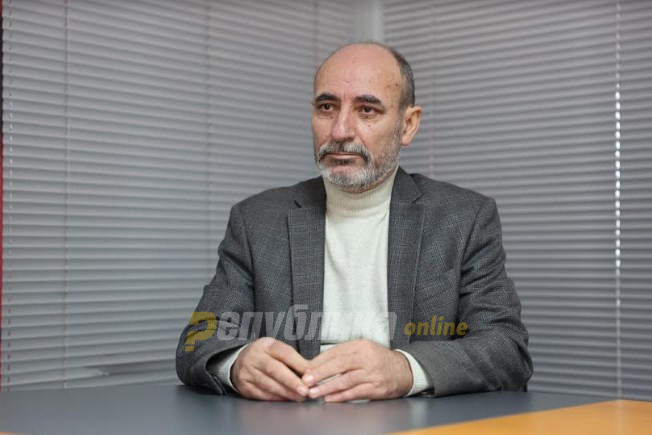The subject of analysis and consideration, in the case of exchanging recommendations, is the textbook for the seventh grade in the Republic of Macedonia, not in Bulgaria. So that, whatever they agree on, whatever recommendation they adopt for the methodological unit for the Ohrid Archbishopric, it would apply to our textbooks, not to the textbooks in Bulgaria. So, the Commission consciously manipulates this in its announcement.
This was said by Prof. Dr. Vanco Gjorgiev, who, due to political pressures, left his job in the Macedonian team of the joint Macedonian-Bulgarian commission on issues of history and textbooks.
The conversation with him follows the last meeting of the Commission, which was held in Skopje, and at which the Ohrid Archbishopric was also discussed, which caused a storm of reactions in the public.
It is evident that at the last meeting of the joint Macedonian-Bulgarian historical commission, the topic of conversation was the methodological unit Ohrid Archbishopric in the textbooks for the seventh grade in the Republic of Macedonia, and that is a fact. In the meantime, various speculations have appeared that the status of the MOC is being discussed. The commission does not have a mandate, nor do I believe that it thought of talking about such a thing. So, I will say right away that this is still speculation in the absence of information. But such speculations are also a consequence of the distrust of the citizens of the Republic of Macedonia towards the institutions, towards the Government, and towards the Commission itself. So, we are all brought, because of that subordinate relationship that our Government is forcing in the talks with Bulgaria in general and especially towards what they accepted the so-called French, and in fact it is a Bulgarian proposal, and the protocols that it gave us, in such a humiliating situation, people have no trust. But the fact is that, I will stay on that, it is being discussed, about the methodological unit on the history of the Ohrid Archbishopric presented in the textbook for the seventh grade, and according to the old programs it is for the sixth grade, because the textbooks are kept that way and it has not been carried out appropriate change. But what the Commission tried to get out of this impasse is the announcement, which they published after various rumors and interpretations, in which I noticed an inconsistency or an attempt at a small manipulation, and that is the moment when they say that they are discussing how the Ohrid Archbishopric is presented in the methodological unit, but there, in the announcement, it is said, it explicitly stands in both states. That is absolutely not the case and I deny it most responsibly, because the subject of analysis and consideration, in the case of exchanging recommendations, is the textbook in the Republic of Macedonia, not in Bulgaria. So, whatever they agree on, whatever recommendation they adopt, it would apply to our textbooks, not to the textbooks in Bulgaria. So, the Commission is consciously manipulating this announcement, says Prof. Gjorgiev.

With prof. Gjorgiev, we also talked about “The Forbidden Name” – his scientific historical work promoted in 2016, at the celebration of the 70th anniversary of the establishment of the Institute of History at the Faculty of Philosophy in Skopje, or, on the other hand, his vision of what will happen to the Republic of Macedonia in the coming years. And naturally, how he looks at it today, from this time distance.
I see the Republic of Macedonia today as a humiliated, subjugated state, a state whose legitimate rights to its own identification, both linguistically, culturally, and historically, are challenged. That means, I would say, a state brought to a subordinate position from outside, says prof. Gjorgiev.
As a specialist for the historical VMRO and the Ilinden period, we also asked prof. Gjorgiev about Ivan Vanco Mihajov, whose more frequent mention of his name led to new Macedonian-Bulgarian misunderstandings, but also to daily political calculations between the government and the largest opposition party VMRO-DPMNE.

Yes, indeed the name of Vanco Mihajlov is controversial, it is what it is, and there is nothing to add or subtract. His role is well-known, even in the end one Bulgaria banned, consciously or unconsciously, his organization. Also, on the other side, here we were witnesses of leaflets being planted, various names of this organization, and recently that story has been renewed, someone trying to compare VMRO-DPMNE with the former VMRO of Vanco Mihajlov, let’s show some continuity. To clarify, VMRO-DPMNE is a modern political party, registered according to the laws of the Republic of Macedonia, with a clear political program and goal, a party that fights in modern conditions for the development of the Macedonian state. And, if someone is trying to look for some kind of continuity, then he should look for it in the overall activities of VMRO, talk about VMRO-United, talk about the Macedonian Revolutionary Organization from 1893, which brought Ilinden, and about those Ilinden people, who then they represented continuity between the former MRO and Ilinden from 1944, at the Second Session of ASNOM. We are all witnesses of what was the role of, let’s say, Dimitar Vlahov, Pavel Satev, how those people were co-opted, so that such labeling, which is coming now, is incorrect and I would say the Udba method, a method known for another time from the early years of the Macedonian state, of the Yugoslav federation, methods that, in the absence of arguments and an offered program to get out of the overall crisis in which the country is, have nothing else to do, except to label others with indecent epithets or qualifications, which have, I would say, neither historical nor again, a moral basis, says prof. Gjorgiev.
Listen to the entire conversation in the video interview conducted by Predrag Dimitrovski





Comments are closed for this post.